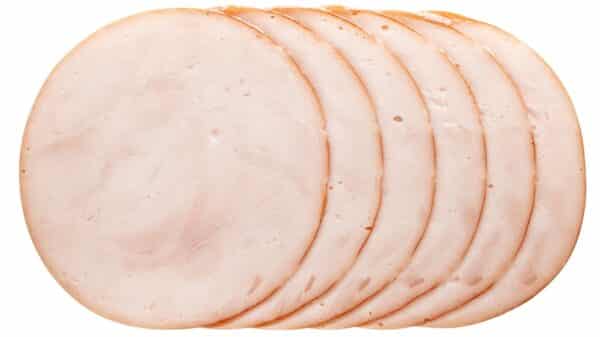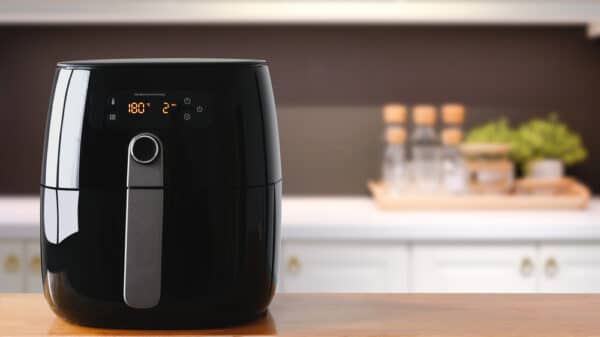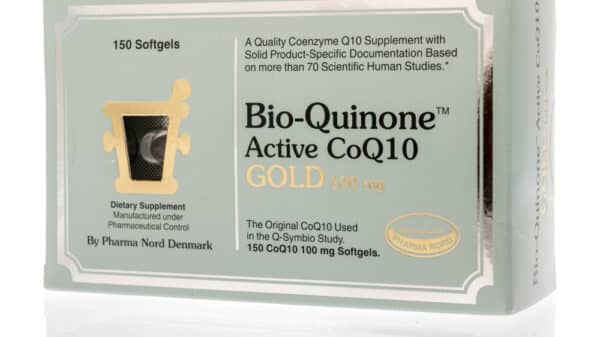Creatine for women is becoming increasingly popular, and it’s not just a fad. This supplement, once thought to be exclusive to male bodybuilders, is carving out its place in the fitness world for women seeking improvements in strength, body composition, and even cognitive health. If you’re someone who spends time in the gym, participates in sports, or simply wants to feel more energetic and strong during your day-to-day activities, creatine might be the key ingredient you’ve been missing in your supplement routine.
In this guide, we’ll delve into what creatine is, why it’s beneficial for women, how to incorporate it into your regimen, and address some common questions to help you make an informed decision on whether it’s right for you.
What is Creatine?
At its core, creatine is a naturally occurring compound derived from amino acids, predominantly found in red meat and fish. Your body also produces creatine in the liver, kidneys, and pancreas. Creatine is mainly stored in the muscles and brain, where it plays a crucial role in regenerating adenosine triphosphate (ATP), the primary fuel source for high-intensity and short-burst activities like weightlifting and sprinting.
Supplementing with creatine boosts your muscle’s creatine reserves, which can enhance your performance during workouts and speed up your recovery afterward. Interestingly, research suggests that women typically have lower baseline creatine levels compared to men—potentially 70% to 80% lower—which could make supplementation more beneficial for females.
Contrary to the misconception that it’s just for men, a growing body of research highlights that women can experience significant advantages from creatine supplementation at various life stages, whether during adolescence, pregnancy, or menopause.
Should Women Take Creatine?
Absolutely! Women can reap the same benefits from creatine as men. While marketers often target men, numerous studies affirm that creatine is equally effective and safe for women.
Increasing numbers of women are turning to creatine to enhance strength, improve muscle tone, and counteract fatigue, as well as to support brain function. The ongoing research backs this up, showcasing creatine’s potential benefits that extend beyond athletic performance. For instance, it can be advantageous for:
– Athletes and Fitness Buffs: It significantly boosts strength, power, and recovery, making it one of the top supplements for anyone serious about their training.
– Pregnant and Postpartum Women: Creatine can aid energy metabolism and may improve neonatal outcomes, providing essential support during this transformative period.
– Women Going Through Menopause: Creatine can play a critical role in preserving muscle mass, bone density, and cognitive health.
– Individuals Experiencing Depression: There’s evidence suggesting that creatine might serve as supplementary therapy to help improve mood and cognitive function.
Whether your objectives are to shed fat, enhance muscle definition, elevate athletic performance, or sharpen your mental acuity, creatine could be a valuable addition to your wellness arsenal.
Benefits of Creatine for Women
1. Increases Strength and Power
Creatine amplifies energy production during intense workouts, making it easier for women to lift heavier weights, complete more repetitions, and recover quicker. This ultimately leads to faster strength gains and an improved workout experience.
One study published in the *European Journal of Applied Physiology* examined the effects of short-term creatine supplementation in older women. The findings showed that participants who took creatine experienced notable increases in strength across various measures, such as bench press and leg press performance, and even improved functional movement like walking. The best part? There were no adverse side effects reported among those taking creatine, proving its safety and efficacy.
2. Supports Lean Muscle Mass
If you’re worried about bulking up, rest assured: creatine aids in the gradual development of lean muscle mass, particularly when paired with resistance training. This translates to a toned and sculpted appearance over time.
For instance, a 2025 study published in the journal *Nutrients* involved 63 participants (34 women, 29 men). Women who supplemented with creatine monohydrate for just a week saw a significantly greater increase in lean body mass compared to a control group. Although both groups gained similar amounts of lean mass over 12 weeks of resistance training, the short-term benefits of creatine were particularly pronounced at the start of supplementation.
Such studies highlight that creatine might be especially potent for women in the initial phases of their training, helping to kick-start their fitness journey and yielding visible results sooner.
Incorporating creatine into your routine can be transformative, allowing you to not only reach your fitness goals but exceed them. It’s a practical, science-backed supplement that offers real-world benefits, helping you connect with your strength—physically and mentally. Whether you want to enhance performance, support your health during changing life stages, or just feel a bit more powerful in your daily life, creatine is worth considering as part of your wellness toolkit.Creatine is often spotlighted in the fitness world for its impressive benefits, and recent research has begun to spotlight its positive effects for women just as much as for men. Whether you’re looking to sculpt lean muscle or recover swiftly after a tough workout, creatine could be your next go-to supplement.
Enhances Exercise Recovery
One of the most compelling reasons to consider creatine is its ability to enhance exercise recovery. After a grueling workout, muscle damage and inflammation can leave you feeling wiped out, but creatine may help you bounce back more quickly. A recent study from 2023 explored how creatine supplementation impacts recovery in active women. In a scientifically rigorous trial involving 39 women, half received 20 grams of creatine monohydrate daily while the others took a placebo. The researchers focused on heart rate variability (HRV) and performance in repeated sprint cycling exercises during different phases of the menstrual cycle.
The findings were promising. The creatine group showed a significant reduction in feelings of fatigue during the high hormone phase, with a remarkable 5.8% decrease in the fatigue index compared to the placebo group. This suggests that creatine could be an ally for women looking to maintain performance during those hormone-driven fluctuations that can affect energy and stamina.
Improves Brain Function
Creatine’s benefits extend beyond just the physical; emerging research suggests it may also enhance cognitive function—particularly for women grappling with sleep deprivation, stress, or the effects of aging. In one study, 10 healthy women aged around 27 took five grams of creatine daily for four weeks. The results? Significant improvements in central executive function and short-term memory as measured by a series of cognitive tests.
Older women also stand to gain from creatine. In a separate 24-week trial that included 56 women aged 60 and above, those who supplemented with creatine—whether alone or in conjunction with strength training—showed marked improvements in memory, attention, and other cognitive functions compared to those on a placebo. If you’re often facing a busy, stressful day or just want to keep your mental edge as you age, creatine might be worth exploring.
Supports Hormonal Health and Aging
As women transition through different life stages, particularly during menopause or perimenopause, maintaining muscle mass, bone density, and cognitive sharpness becomes increasingly important. Creatine can be a useful companion during these phases. Research indicates that women typically store only 20% to 30% of the creatine levels found in men, making supplementation particularly impactful.
During these hormonal shifts, the body’s creatine metabolism can fluctuate, influencing energy levels and mood. Supplementing with creatine may help support energy balance, cognitive function, and overall emotional well-being during these challenging times. Postmenopausal women might also experience enhanced muscle size and function when combining creatine with resistance training, making it a great addition to a perimenopause-focused diet.
May Boost Exercise Performance
Creatine doesn’t just help with recovery and cognitive function; it’s also a powerhouse for boosting exercise performance. By increasing the availability of ATP, the energy currency of our cells, creatine can enhance both strength and endurance during workouts. While a lot of the research has historically centered on men, recent studies are confirming that women can also reap these benefits. If you’re looking for an edge in your strength training or high-intensity cardio sessions, creatine could help you achieve new personal bests.
Protects Bone Health
For women particularly at risk of osteoporosis, creatine can be an essential supplement. Studies have demonstrated that coupling creatine with resistance training can improve bone density, particularly in vital areas like the femoral neck, reducing the risk of fractures. If you’re a woman approaching menopause, or already in that stage, focusing on bone health through creatine and resistance training could have lasting benefits.
Supports Reproductive Health
Emerging studies suggest that creatine may also support reproductive health. Adequate creatine levels during pregnancy are crucial for fetal development and may even protect against certain complications. A noteworthy analysis explored dietary creatine intake among over 4,500 U.S. women and revealed that those meeting recommended creatine levels faced a lower risk of irregular menstrual cycles and various reproductive health issues, including the need for hormone therapy. Ensuring sufficient creatine intake might be an overlooked aspect of maintaining reproductive health.
Combats Fatigue and Short-term Sleep Deprivation
In the daily hustle and bustle of life, creatine is more than a performance booster; it may also help combat fatigue. If you’ve had a rough night of sleep or just find yourself feeling a little run down, creatine has the potential to improve mental clarity and reduce feelings of tiredness.
In short, the benefits of creatine supplementation for women are broad and varied—spanning exercise performance, recovery, brain function, and even hormonal and reproductive health. Whether you’re an athlete, a busy professional, or simply someone trying to enhance well-being during life transitions, exploring the inclusion of creatine into your regimen could be a smart move. Your body, mind, and future self may very well thank you for it.Sleep troubles can be a significant hurdle in our daily lives, and the stress that often accompanies sleepless nights can exacerbate this issue, especially for women juggling countless responsibilities. When life gets overwhelming, it’s essential to have strategies in place to manage those days characterized by stress and fatigue.
One often overlooked solution is creatine supplementation. While commonly associated with athletes, this powerful compound has been shown to have benefits well beyond just physical performance. Studies reveal that sleep deprivation can impair both cognitive and physical abilities. However, research indicates that creatine can help alleviate these negative effects, boosting mood and sharpening cognitive tasks that require intense mental focus. So, if you’ve had one of those long nights, creatine might just be your new best friend.
Mood Enhancement
There’s more good news: creatine has also shown promise in lifting mood, particularly for women facing mood imbalances or high stress. By aiding in the balance of brain energy metabolism, it supports emotional stability. Clinical trials suggest that creatine can significantly reduce depressive symptoms, especially when combined with traditional antidepressant treatments. These findings highlight its potential as an adjunct therapy that could improve overall mental well-being.
Hydration and Recovery Benefits
In addition to its mood-boosting effects, creatine plays a crucial role in cellular hydration. It pulls water into muscle cells, aiding in recovery and enhancing overall metabolic function. This process not only helps muscles feel fuller but may also support protein synthesis and optimize glycogen storage. Therefore, whether you’re hitting the gym or recovering from a long day, creatine can be your ally in both performance and recuperation.
How to Incorporate Creatine into Your Routine
If you’re considering adding creatine to your daily regimen, here’s how to do it effectively:
1. Choose the Right Type: Look for creatine monohydrate, the most researched and effective type. Opt for high-quality brands that have undergone third-party testing to ensure purity and potency.
2. Dosage: Start with a loading phase—20 grams per day divided into four doses over five to seven days—before transitioning to a maintenance dose of three to five grams daily. Alternatively, you can skip the loading phase and take three to five grams consistently.
3. Timing: Creatine can be taken anytime, but many women prefer post-workout with a meal or shake to maximize recovery. While timing isn’t crucial, post-exercise consumption may enhance muscle uptake.
4. Stay Hydrated: It’s vital to drink enough water while taking creatine to support kidney function and get the most out of its benefits.
5. Mixing: Creatine is flavorless and dissolves well in warm water or smoothies. For better absorption, consider mixing it with a source of carbohydrates.
Understanding Potential Risks and Side Effects
Just like any supplement, creatine isn’t without its potential side effects. Fortunately, it has a strong safety profile, but some women may experience:
– Mild bloating or water retention, particularly in the initial weeks.
– Temporary weight gain due to increased water in the muscles (not fat gain).
– Digestive discomfort if taken in larger doses or without enough fluids, leading to bloating or stomach cramps. Dividing doses can often alleviate these issues.
Image Source: Unsplash
































